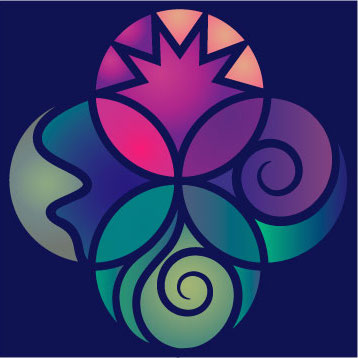Love among the Medicines
/As a tiny child of three or four years old, I wanted to be a hairdresser. I liked to touch people’s hair and it was a delightful feeling, both touching and knowing how happy people were to have a little child play with their hair. I do remember one of my grandparents suggesting that I might become a doctor. I thought to myself then that all that blood would be too disgusting. I had seen my grandma preparing chickens for the pot.
When I was seventeen, I worked in retail in a manchester shop in Marrickville Our shop was in the immigrant part of town. Most of the newer immigrants were from the Mediterranean then — Greeks, Italians, a smattering of Lebanese. (The Vietnamese immigrants who would so fully and fragrantly populate that suburb later were still in so-called refugee camps then.)
We sold sheets, towels, pillowcases, flamboyant blankets and valances (that’s where I learned what a valance was). Especially famous were our red velvet, white broderie anglais or thick raw silk bedspreads. These ended up in bridal glory boxes. A glory box was a collection of linen for a young woman’s married life. The most popular products were Italianate and baroque in style, with lots of red and gold, lots of flounces and embroidery. There were also bold designs of roaring lions and leopards on blankets, big bright beach towels and cloyingly sweet baby linen.
In those days, people bought goods by lay-by; credit cards were a mysterious symbol of unimaginable wealth. Families selected goods for the young woman’s glory box over years, paying small amounts weekly, collecting stacks of receipts that were stapled to their lay-by cards. When they got paid at work – in cash in satisfying brown envelopes—they brought it directly to my cashier’s desk at the store, laying out the dollars to be put directly on each lay-byed item or collection.
Coming to the store to take the glory box out was a big event. All the women of the family came, always several in black, widows who perhaps remembered their own dowries, carried across the sea by ship or pushed carefully into the bottom of a suitcase. One of the saleswomen had to climb a ladder and forage among the alphabetised shelves in the back, eventually bringing down dusty, tattered cardboard boxes. Beautiful fabrics, selected long ago and seen only in the women’s dreams since, were unwrapped and admired. I stood behind the cash register and drank it all in.
By my thirties, I was a pragmatic single mother. Financial security was an important motivation for me, as it was for many of us medical students in the nineties. We had come of age during the recession in the early eighties. There are, of course, other reasons to become a doctor. Many of us needed to be needed. For some of my peers, there was a lingering appreciation for high status, a medical degree being some kind of proof, finally, that you were good at school work. A couple of my colleagues intended to use their medical degrees as stepping stones to political or entrepreneurial careers. And finally, some people really did want to relieve suffering, usually poor souls who’d seen a loved one through a long sickness as a child.
My own initial interest in medicine was intellectual. I wanted to be educated in science and I wanted to understand bodies. I was interested in the medical view of the human body, and the language and culture surrounding that perspective. Even today I enjoy knowing that the strip of a muscle that crosses the front of my thigh is the sartorius, so named for the way a tailor’s tape measure moves from hip to inner knee. It took me a long time to learn to speak and write medical language. In my early years as a student, I felt resentfully that doctors used medical language only to intimidate people and keep them in the dark. Now I love medical language. It serves as a clear means of communication between medical people of different streams and backgrounds, even internationally.
But doctoring is not just intellectual labor. I touch and am touched by people, physically and emotionally, many times a day. There is tremendous scope for kindness in my work and that enriches my soul. To be really fortunate in this life is to have work that allows you to share the love within you. I get to do that as a doctor, in my better moments, at least.
(Of course this is not to suggest that doctoring is the only job where you get to share your love. There are thousands of jobs -- keeping public areas safe, making sure that the water is clean, teaching, massaging, growing plants, organizing information, making food, helping people take care of their wealth, making clothes– where human love can be at work. It could also be at work in the fact that a job enables you to feed the ones depending on you or save to travel to South America.)
It can be hard work certainly, finding the job where you can share your particular kind of love. I’m relieved that I’m not a hairdresser, now that I know how hard they work. I appreciate being able to hold a patient’s hand or gently wash a wound. I learn about life from the insights my patients offer me every day. Like those magnificent glory boxes, our bodies, too, hold memories and dreams. I get to marvel at them every day.




